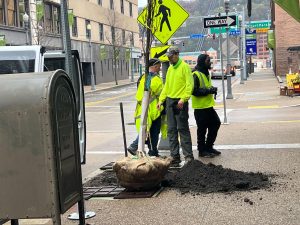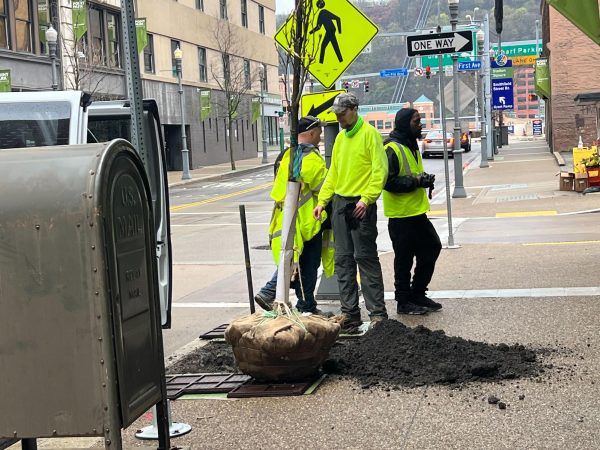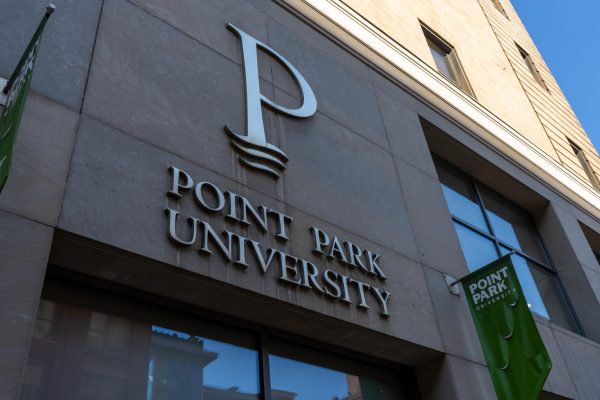Gov. Wolf grants $3 million for emergency shelters due to rising rates of evictions and homelessness during pandemic
December 9, 2020
On Nov. 30, Governor Tom Wolf’s administration announced that $3 million will be given to 15 municipalities and organizations across 20 counties in order to assist and combat homelessness in Pennsylvania during the winter and holiday season.
“All Pennsylvanians are entitled to safe shelter, and that is never more important than in the cold winter months,” Gov. Wolf said. “This funding will help ensure that our communities can safeguard the health of all residents and protect them from the elements while working to mitigate the spread of COVID-19 in the commonwealth.”
The program, Code Blue, was created to provide emergency shelter in advance for the upcoming winter months. Allegheny County was allocated the largest sum of the grant, receiving $1 million dollars.
While this grant will expand potential housing for homeless and or evicted people, eviction rates across the country are expected to rise after the holiday seasons. A federal eviction freeze enacted by the Centers for Disease Control to stop the spread of COVID-19 will expire on Dec. 31.
Heather Starr Fiedler, the Chair of the Department of Community Engagement and the head of the initiative Wood Street Communications at Point Park, said there are a plethora of factors that lead people and students into homelessness.
“I think so much of it now is financial. I think in the past, a large majority of homelessness has a strong tie with mental health issues. This year, we are seeing certainly a larger number of people losing reliable homes due to financial issues because of the pandemic,” Starr Fiedler said.
According to the U.S. Census, 13.3% of adults in Pennsylvania either missed last month’s rent payment or have no faith that they can pay next month’s rent. In another study based on job and wage loss, the Aspen Institute Financial Security Program and the COVID-19 Eviction Defense Project projected that 19 to 23 million renters in the United States are at risk of eviction through the end of 2020, which is up to 21% of renter households.
“[People] are losing their jobs, and they’re unable to also then pay their rent or mortgage. Now some of that has been held off because of the governor’s freeze on evictions but some of those programs are ending,” Starr Fiedler said. “There are also some CARES funding and other money that was coming in to help people with paying rent and mortgage but those have now stopped as well. I think we’re going to see a lot more [evictions] unless those programs are renewed.”
According to the PA Housing Agency, Gov. Wolf extended the CARES renters and homeowners programs through Nov. 4. The program granted assistance to renters and homeowners who were financially impacted during the pandemic and unable to make payments towards rent or their mortgages.
Starr Fiedler expressed that chronic homelessness and evictions are a part of larger scale systemic issues that takes more than one simple solution to cover it up and deem it solved.
“I was encouraged to see the grant funding come out of the state for more emergency shelters, which I think is important. I know at the university we’re working to help identify students that might not just homeless but housing insecure,” Starr Fiedler said. “Housing insecure means we’re not sure we can pay our utility bill or water bill or rent and so there’s that worry and fear that it’s going to lead to homelessness.”
Young adult college aged students are a rising group of people that are facing these increased conditions of evictions and homelessness too. In a study done by the New Hope Center, it reported that 11 percent of students at two-year institutions and almost 15 percent at four-year institutions were experiencing homelessness due to the pandemic.
Point Park does have administrators and professors who work with students who are experiencing housing insecurity, evictions and homelessness.
Dean Michael Gieseke, the Dean of Student Life, said he can’t say for sure if any Point Park student has faced homelessness because of COVID-19, “but we have had students come to us to help them with fees that they were not able to pay these initial fees. We work with students on an individual basis when that does occur.”
If students are struggling during this pandemic and faculty or staff can submit an early alert to Sarah Guidi, the Director of Student Intervention.The alert will go into a system called Finishline and she will reach out to the student.
“Students have the ability to request a financial aid appeal. If there’s a hardship at the start or during the semester and they’re having concerns with their bills, students can submit through the financial aid office and appeal to request additional university support,” Gieseke said.
Overall, Gieseke emphasizes that the school priorizes students’ mental health during this precarious time.
“Our main purpose is for students to be as physically and mentally health as they can. Obviously we want out students to continue their education so our first goal is to do that. However if it is in their best interest to take a leave of absence or to step away or do some incompletes, we will earnestly work with them,” Gieseke said.














